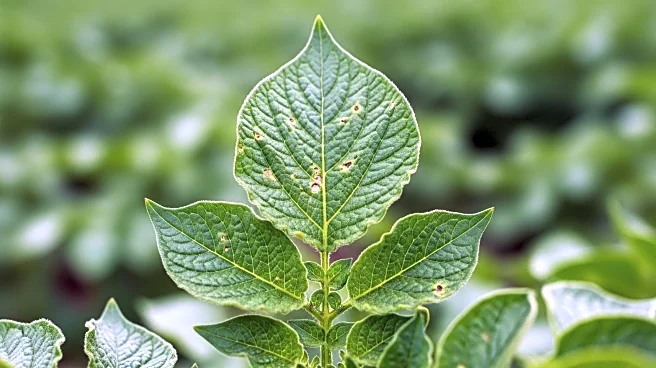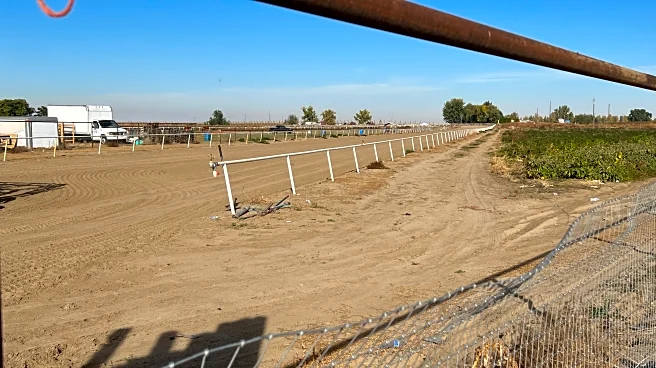What's Happening?
A new leaf disease, resembling early blight, has been detected in South African potato fields, raising concerns among farmers and researchers. The pathogen, Colletotrichum coccodes, traditionally known as a post-harvest issue, is now affecting potato foliage in the field. Dr. Elsie Cruywagen, a crop protection specialist at the Agricultural Research Council (ARC), highlighted the emergence of symptoms on green stems and leaves, which resemble early blight but lack Alternaria, only showing Colletotrichum coccodes. The ARC is urging farmers to submit samples for testing as research continues. This development is significant as the pathogen's presence on living plants marks a new challenge for potato cultivation. Dr. Cruywagen also discussed potato late blight, caused by Phytophthora infestans, which remains under control but could become epidemic under favorable conditions. The ARC is collaborating with Potatoes SA to test fungicides across various regions, noting a loss of sensitivity to several active ingredients.
Why It's Important?
The detection of Colletotrichum coccodes on living potato plants poses a potential threat to potato production in South Africa, a key agricultural sector. The disease's ability to affect foliage could lead to reduced yields and increased production costs for farmers. The ARC's call for vigilance and sample submission underscores the urgency of addressing this issue to prevent widespread damage. The situation highlights the importance of integrated disease management and the need for innovative approaches to combat evolving pathogen populations. The potential impact on food security and agricultural sustainability is significant, as potatoes are a staple crop. The ARC's research and collaboration with Potatoes SA aim to mitigate these risks by developing effective control strategies.
What's Next?
Farmers are encouraged to send samples of affected plants to the ARC's Plant Health and Protection Research Institute for further analysis. The ARC will continue its research to better understand the pathogen and develop effective management strategies. The focus will be on integrated disease management, including rotating fungicides and avoiding repeated use of the same group. The ARC aims to provide farmers with actionable insights to adapt to changing pathogen dynamics and maintain sustainable production. As climate change and pathogen evolution continue to challenge agriculture, ongoing research and collaboration will be crucial in safeguarding potato crops.
Beyond the Headlines
The emergence of Colletotrichum coccodes on living plants reflects broader challenges in agricultural disease management, exacerbated by climate change. The need for innovative solutions and data-driven approaches is critical as traditional methods may become less effective. This development also highlights the importance of collaboration between research institutions and farmers to address complex agricultural issues. The ARC's proactive stance in testing and advising farmers demonstrates the role of research in supporting sustainable agriculture. The situation may prompt increased investment in agricultural research and technology to enhance disease resistance and crop resilience.










